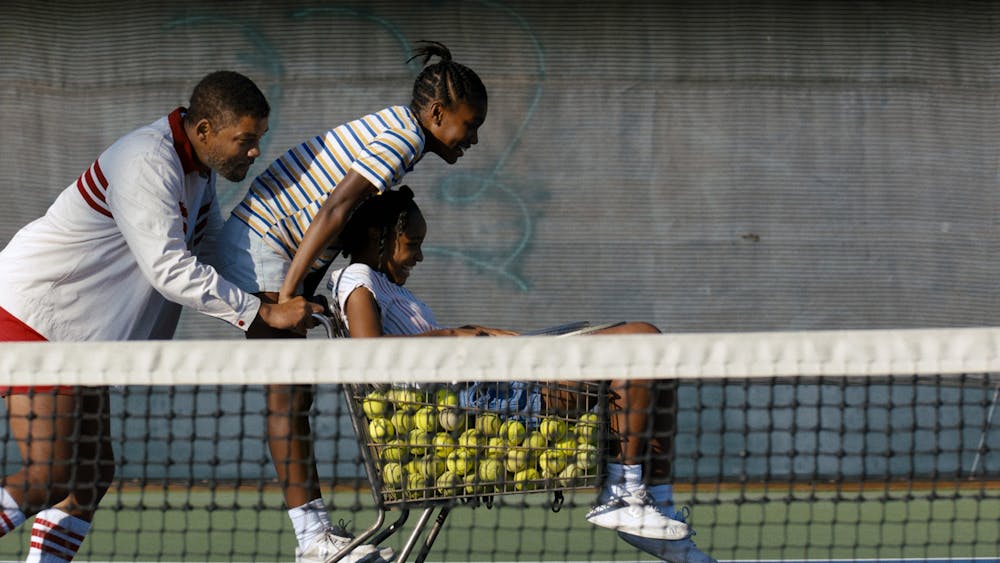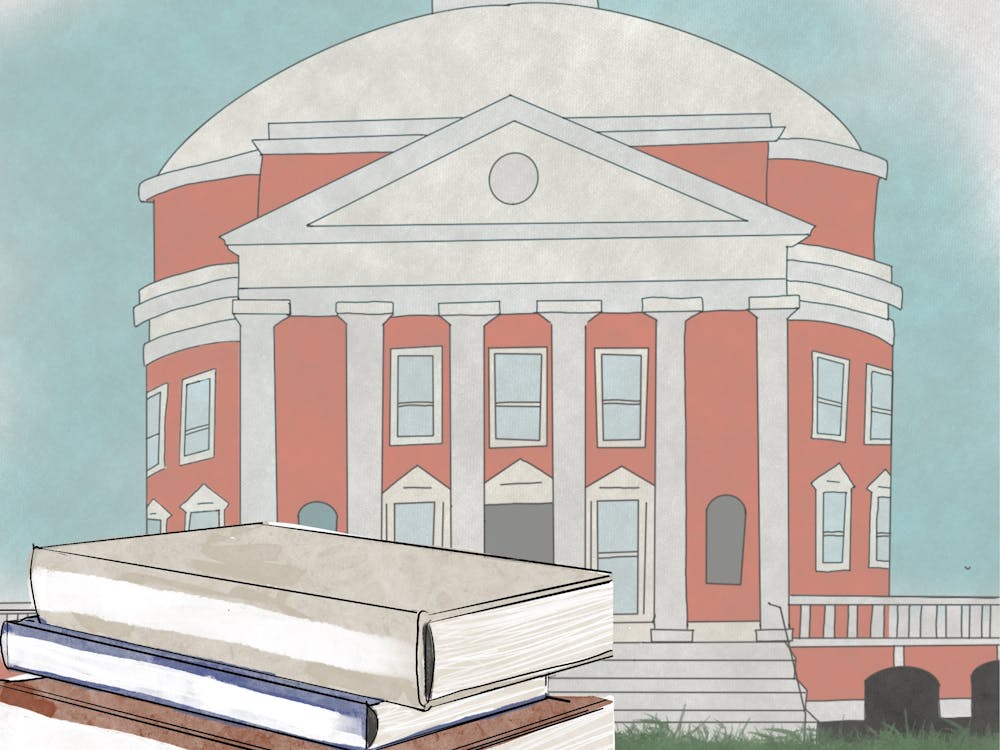Striking a balance between a sports epic and a family dramedy, Warner Bros. newest film “King Richard” was released Friday. It may be named for the Williams' family patriarch but the whole family’s desire for world-renowned success drives the film. Directed by Reinaldo Marcus Green, “King Richard” features Will Smith in his first post-pandemic role as the titular character, Richard Williams guiding daughters Venus, played by Saniyya Sidney, and Serena, played by Demi Singleton, along his 75-page plan for tennis superstardom.
While its subjects are two of tennis’s greatest of all time, in the virtual global press conference for the film, Green said, “I wanted to make a movie that my mom could see — and she’s never seen a tennis match before,” emphasizing the importance of family to the narrative.
The bond between the on-screen Williams' family is clear from the film’s beginning, with the five sisters piled into the back of their father's rusting red van. The girls prodded at and laughed with one another on their way to the tattered Compton court where they practiced — with no mind paid to the conditions under which they trained, but rather their goals for the game. Vibrant colors and playful chemistry, particularly between Sidney and Singleton, not only convey the family’s love for one another but prove that their resilience overcomes conditions of poverty.
On striking the warmth between actors on screen, Tony Goldwyn, who plays tennis coach Paul Cohen, said, “it was easy because [we were] a family.”
The vibrance of the training sequences and love between the sisters provided for an engaging optimism, but the film does not evade realism by straying away from disputes in the family. Tensions peak in a masterclass display of acting from Aunjanue Ellis as Oracene Price, the family's matriarch, in an argument over parenting in the film’s third act. It was important to Ellis to convey that Richard “did not do this alone." Richard Williams may be the titular character, but the family’s story would not be complete without Price’s commitment to love and support their daughters. "To do something where we did not see where Miss Oracene was not a co-conspirator of this crazy dream would be dishonest,” she said.
The confrontation between Smith and Ellis proves to be a highlight of the beginning of the third act, as it features a jump in time that struggles to find its landing. Focusing first on Richard’s press presence, the narrative relies largely on prior knowledge of the Williams' story as it gestures to controversy surrounding the family.
Distractions from the lapse in time fade as we become steeped in Venus’s desires to play professional tennis and Richard’s fears of how racism in the media may react to a young Black girl's meteoric rise. In a scene that Smith describes as a summation for his respect for Richard, he defends his daughter to an interviewer second guessing her answers. Venus sits in the golden hour light and smiles at her father in response.
“It was like she had a lion, she was so confident and so comfortable that her lion wasn't going to let anything happen to her,” Smith said.
The film showcases Sidney’s performance, especially in the final act as she approaches her first professional match. Suspension grows with each close-up of Venus serving a ball, isolated from any court or crowd, as the shot is repeated throughout the film to map her allegiance to the sport and to ground the viewer in her journey.
For a movie not directly centered upon tennis, Green succeeds in making the game interesting and accessible through both Sidney’s and Singleton’s commitment and clever editing. Playtime is carefully lingered on and moved past, building anticipation for juniors’ tennis matches played 27 years ago. Amid these epic genre scenes the family is still omnipresent through reaction shots and cheers in the stands, and Richard’s many reminders that “we’re here to have fun.”
Isha Price, one of the family's daughters, played by Danielle Lawson in the film, said the time was right to make the film when she knew screenwriter Zach Baylin sought to tell “not [a story] of vilification, but ... the story of my dad.”
In the pursuit of Richard’s story, Baylin and Green provide an account of a father who knew the worth of his children and stopped at nothing to prove it to the world. For the viewers, however — although the film is named for and centered around Richard — it is often most gripping when the film explores the tenacity of Venus and Serena. But, given Richard’s dedication to his children, this too could easily be a part of his plan.





